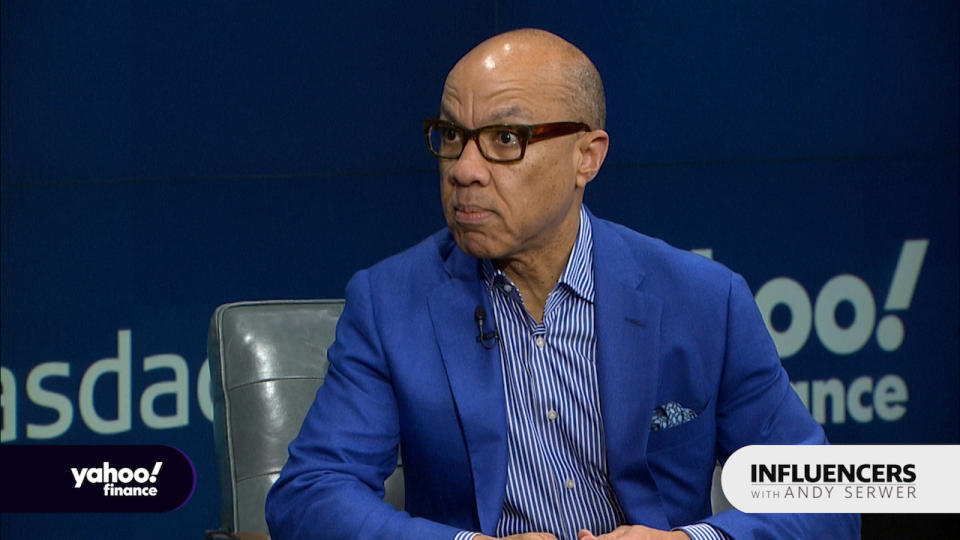Ford Foundation president says company profit-sharing could address inequality
The call to address wealth inequality has gained urgency even among economic titans, drawing concern recently from former Fed Chair Janet Yellen and JPMorgan Chase CEO Jamie Dimon. But its remedies are more divisive, most notably a billionaire-angering wealth tax proposed by Democratic Massachusetts Senator Elizabeth Warren.
In a newly released interview, Ford Foundation President Darren Walker puts forward an unsung solution that in past decades has garnered support from corporations and activists alike: profit-sharing.
“We capitalists don't like to talk about redistribution,” he says. “But ultimately, in order to have the kind of country, the kind of society, we've got to talk about why don't we have any longer profit-sharing for our employees."
The longstanding notion of profit-sharing — a company opting to redistribute its surplus to employees — returned to prominence most recently in 2016, when then-presidential candidate Hillary Clinton proposed a tax cut for companies that participate in such a program. In the late-19th and 20th centuries, a number of large U.S. corporations shared profits with their employees, including Sears, Procter & Gamble, Hallmark Cards and U.S. Steel.
While about one of every three private-sector workers in the U.S. share in their company’s profits, the practice has largely fallen out of favor. Backlash from stock analysts against Americans Airlines in 2017 demonstrated how the corporate environment had turned against the policy, Walker said.
“Two years ago, the CEO [Doug Parker] of American Airlines put in place a profit sharing plan for workers, and he was heavily criticized by Wall Street,” says Walker, whose recently released book “From Generosity to Justice” is available free in e-book or audiobook form.
“In fact, the analysts, some of them, downgraded American Airlines stock,” Walker adds. “And among the things they cited as problematic was the fact that the airline wanted to share more of its profits with its workers.”
Walker made the comments during a conversation that aired in an episode of Yahoo Finance’s “Influencers with Andy Serwer,” a weekly interview series with leaders in business, politics, and entertainment.
A native of rural Texas, Walker made it on Wall Street as a banker for the Union Bank of Switzerland — but he left it behind to volunteer full-time at an elementary school in Harlem. Eventually, he shifted to philanthropy, working at the Rockefeller Foundation and then the Ford Foundation, where he has served as president since 2013.

Highlighting the past effectiveness of profit-sharing, Walker invoked the experience of a family member.
“My grandfather, who was barely literate with a third grade education, worked as a porter at an oil company in Texas,” he says. “He benefited from a profit-sharing plan and that-profit sharing plan allowed him even as a low-wage worker to live a life of dignity in retirement.”
Walker — the head of an organization founded in 1936 with a gift from Henry Ford’s son Edsel Ford — is “committed to capitalism,” he says.
But he takes fault with the current version of our economic system, which in his view has worsened inequality.
“The problem is we have a kind of capitalism that is distorting the potential of capitalism to deliver benefits for more people,” Walker tells Serwer. “So we have designed a form of capitalism that over-indexes for higher income people.”
Walker pointed to struggling Americans whose “dreams and aspirations are being asphyxiated by a kind of pernicious inequality that makes it impossible for them to believe in the American dream,” he says.
“When the American dream dies, America dies,” he adds.
Max Zahn is a reporter for Yahoo Finance. Find him on twitter @MaxZahn_.
Read more:

 Yahoo Finance
Yahoo Finance 
